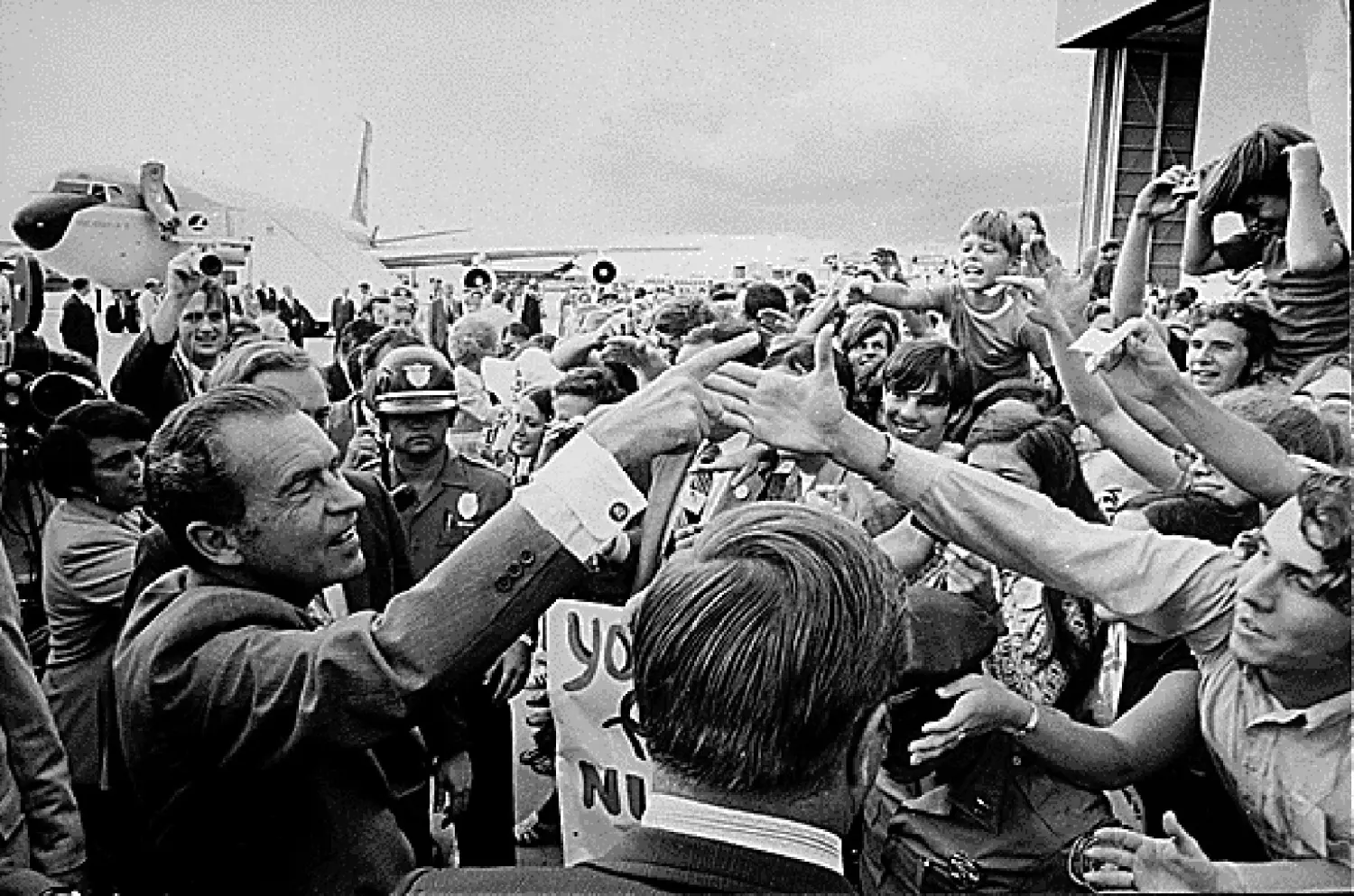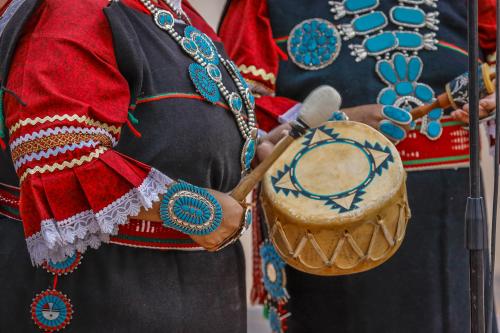Editor’s Note: In “The Nixon Sightings,” Steve Hess recalls five key moments in his time working with Richard M. Nixon. Each vignette offers a peek into some of the events that drove a young Senator from California to the Oval Office. This series was written as background to Hess’ new book The Professor and The President: Daniel Patrick Moynihan in the Nixon White House (Brookings Press, December 2014), a “dramatic narrative” of events in 1969-1970, told in the present tense.
Nixon and I are to meet in his New York office on Wall Street shortly after his plane touches down from Dallas, probably 4 pm.
He is about to sign a book contract with Doubleday and I agree to take charge of the research. Theodore White’s account of the Kennedy-Nixon contest, The Making of the President 1960, had explored campaign management, revolutionized political journalism, and been a massive best-seller. Now Nixon proposes to challenge White with his own version of The Making of the President 1964. The premise is that the former presidential candidate (no longer a contender having lost his race for California governor) is better able to explain how the process really works.
While I am having a leisurely lunch with a Doubleday editor in midtown Manhattan, our waiter tells us something about “Kennedy dead.” He has a heavy Italian accent. Is he is trying to tell a joke? We don’t think it is funny. Still, I find a TV set that confirms the waiter’s news.
There are dates in history that everyone remembers, connecting their personal details: where they were, who was there, what was said. November 22, 1963 is one such day.
I quickly call Rose Mary Woods. She hasn’t heard from her boss. “What should I do?” I ask. “Get to his apartment (on Fifth Avenue and 62nd Street). He will be going there directly, I’m sure.”
I will learn that Nixon got off the plane at LaGuardia, got into a taxi, and at a red light in Queens someone in another car shouts, “Did you hear the president’s been shot?” Nixon redirects the driver to take him home, where his doorman, weeping, tells him that Kennedy is dead.
A few minutes later I arrive. He opens his apartment door. His jacket is off although he is still wearing a tie. He looks shaken. I don’t know what is in his head, but to the man who lost, I suspect “There but for the grace of God go I.”
He shows me that morning’s Dallas newspaper. We are still standing in the entrance. He wants me to see an article about his press conference during which he urges the city to give Kennedy “a courteous reception.” He refers to a recent Dallas incident when Adlai Stevenson was heckled and spat on; this is not the way people should disagree in a democracy, he says, we must show respect for political adversaries.
Why is he showing me this?
Is he is worrying that Kennedy has been killed by a right winger and he, Nixon, will be accused of unleashing a political whirlwind? The unspoken words are “You see, I didn’t have anything to do with this.”
We move down the hall to the den. Nixon phones Eisenhower, who is in New York staying at the Waldorf Towers. His aide says Ike is taking a nap and he will not wake him. Nixon calls J. Edgar Hoover, director of the FBI, who tells him that the assassin was a left winger with a Castro connection. Nixon, I think, feels relief.
The rest of the afternoon is filled with detail, preparing a statement for delivery before the TV cameras that are gathering in front of the building. Nixon wants to talk about his friendship with Kennedy from when they were both freshmen members of the House of Representatives. He must clear his schedule to go to the funeral, cancel a date to play golf tomorrow with Roger Blough, president of U.S. Steel; cancel an evening at the opera with Tom Dewey.
The next morning when I arrive at Nixon’s apartment politicos are already paying their respect to the man who three years ago almost defeated Kennedy. Len Hall, former chairman of the Republican National Committee, is there; Cliff Folger, who was his 1960 finance chairman, is on the phone. They are reviewing how sudden events can reshape future possibilities.
Nixon will not be writing The Making of the President 1964. I go home to Washington, a city now in mourning.
(Many years later I asked Oliver Stone if he knew that Nixon was in Dallas on November 22, 1963? Oliver Stone, being Oliver Stone, replied, “Was he on the knoll?”)
The Brookings Institution is committed to quality, independence, and impact.
We are supported by a diverse array of funders. In line with our values and policies, each Brookings publication represents the sole views of its author(s).





Commentary
The Nixon Sightings, Part III: November 22, 1963
December 17, 2014